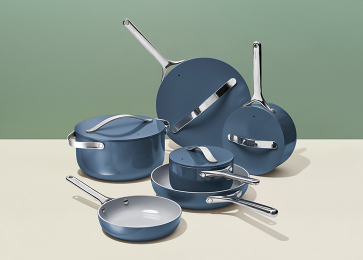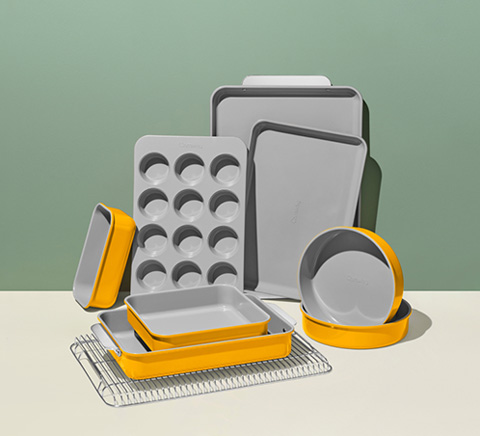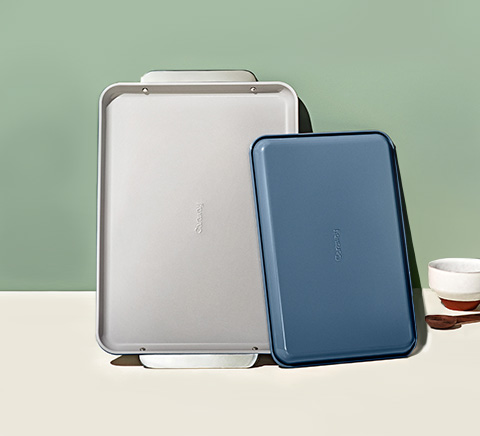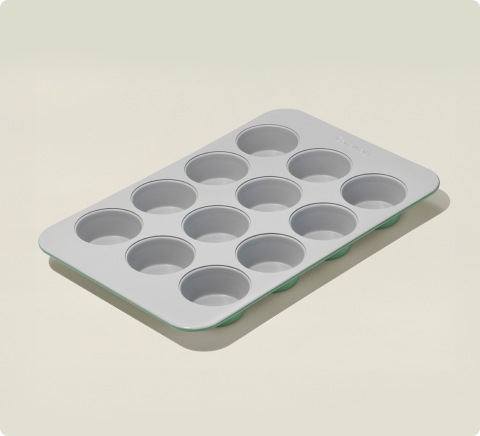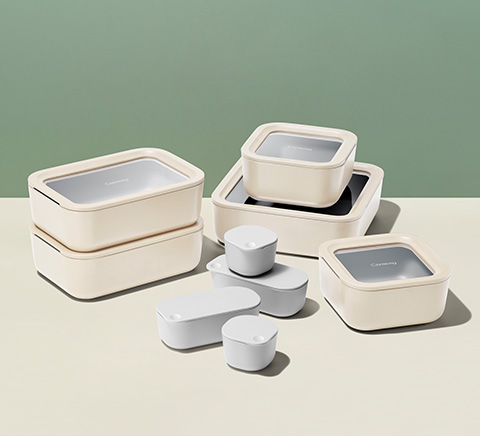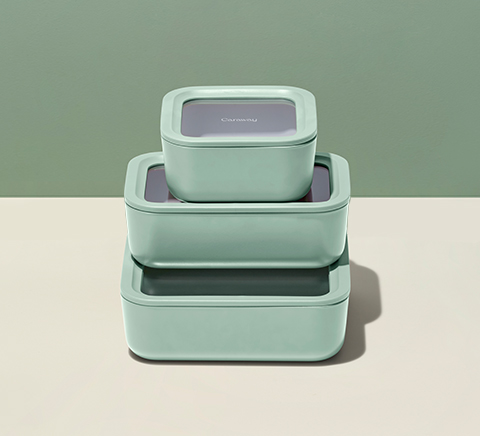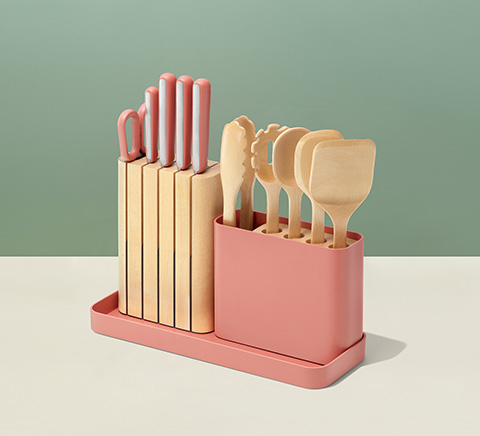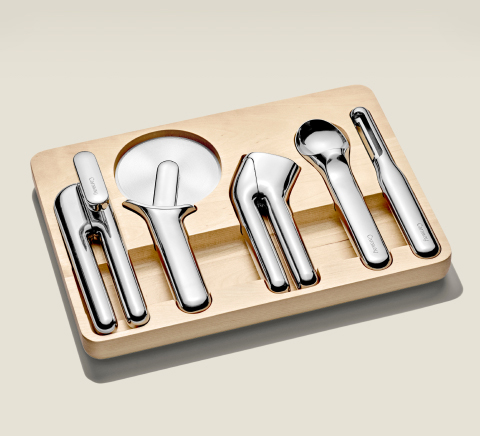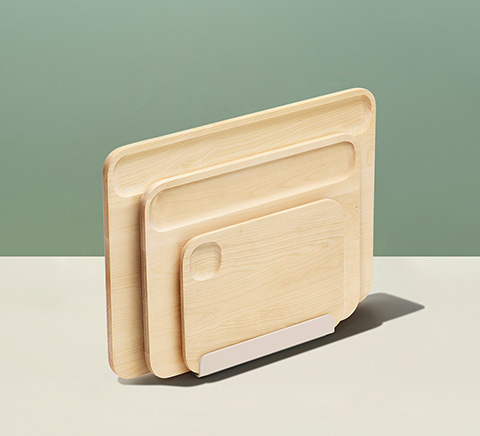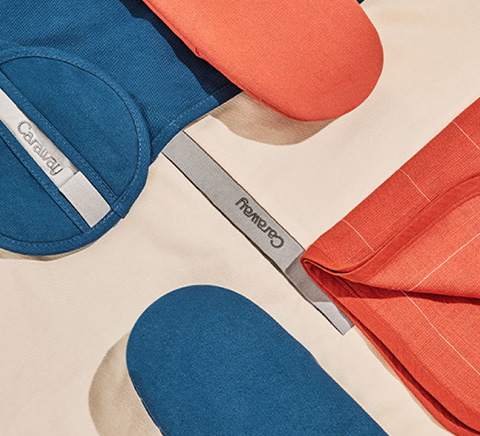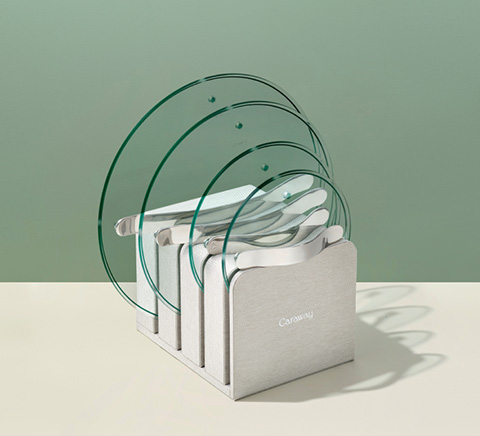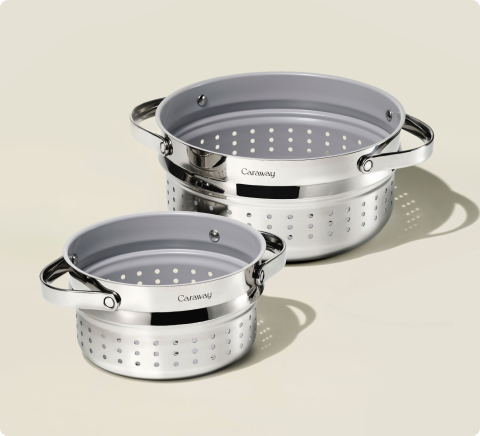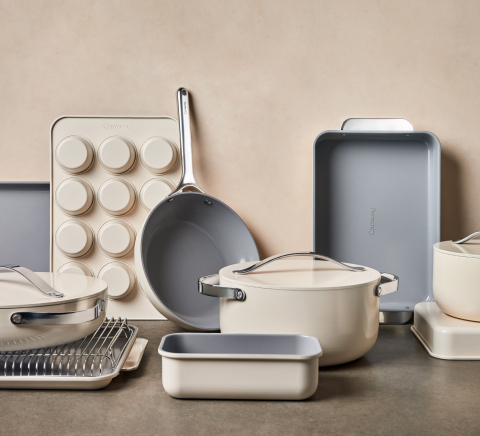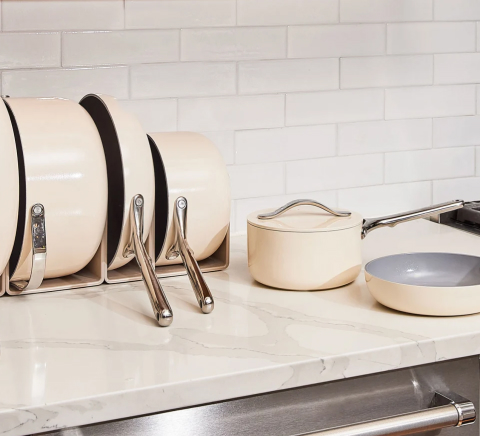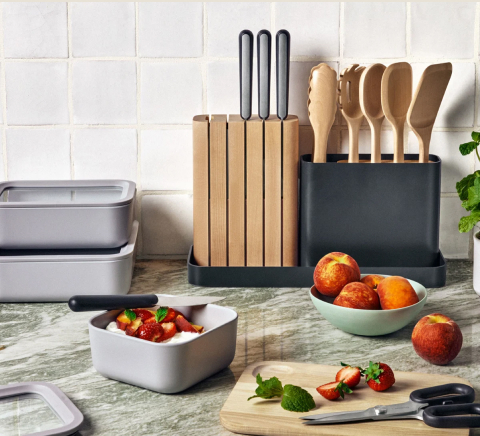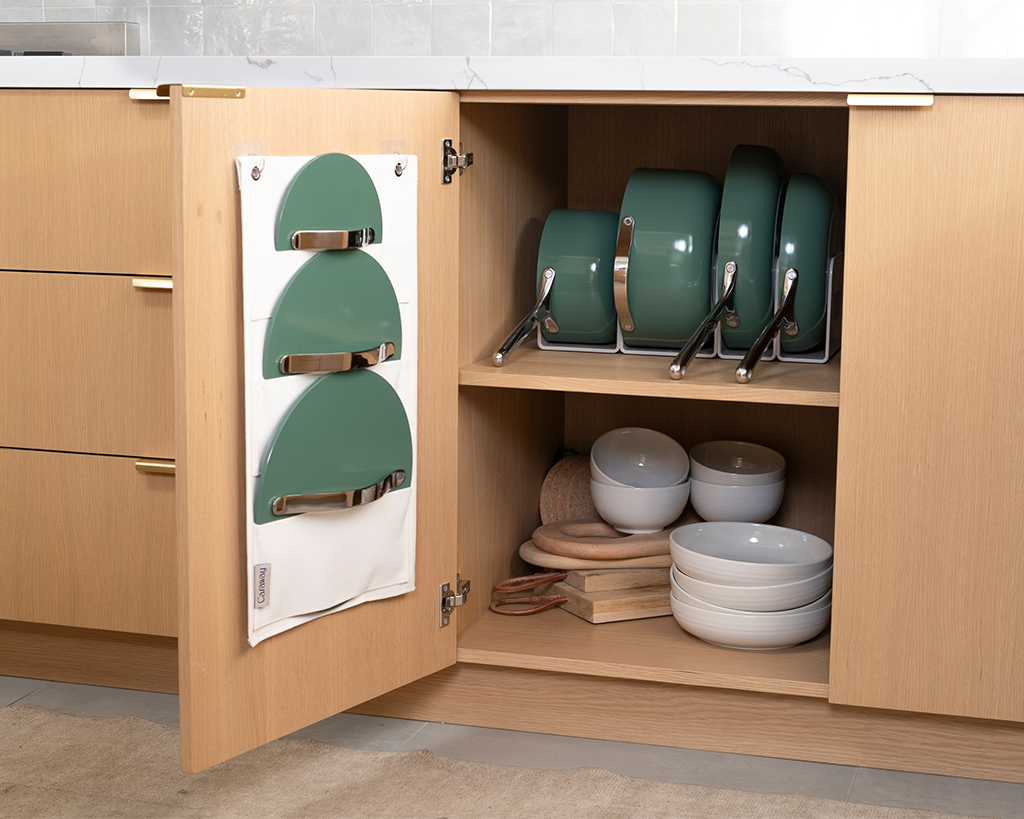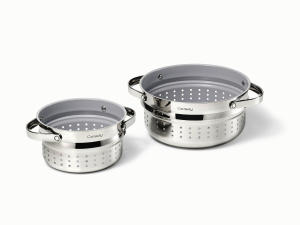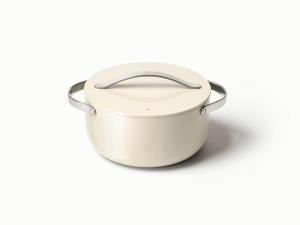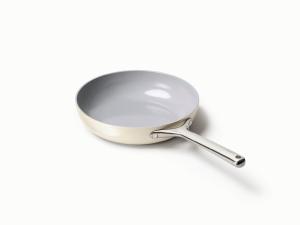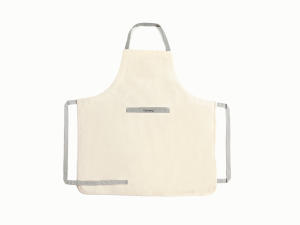Wondering what a colander is? Check out this guide to learn about the many uses for kitchen colanders and how they differ from strainers and chinois.
Listen, everybody loves a warm spaghetti dish as a late-night meal. It’s delicious, inexpensive, and so easy to make...well, for the most part. What we don’t love is the very last step of transferring the pasta out of the water.
Thankfully, a colander is a must-have kitchen tool that can help with that, all while also serving so many of your other kitchen needs.
What Is a Colander?
Sure, we’ve all heard of a colander before and maybe even smiled at its unique-looking shape, but have you ever learned what it actually is and what it does? Well, now you will.
A colander is a kitchen utensil that is primarily used to rinse vegetables or strain foods such as pasta. The bottom is perforated, which allows for water or liquid to drain through while holding on to the solids inside.
Colanders are often made out of light metals such as aluminum or thin stainless steel, although they can also be made out of plastic, silicone, ceramic, or enamelware. Usually, they have a bowl shape to them; you may have seen what is known as a mated colander pot. This is a colander that is placed on top of a pot and appears lifted up from it a bit.
Check out our Steamers
Now, before we dive into all the reasons why you should be running to the store right about now and buying yourself a colander for your kitchen, there are a few things we need to get straight.
You have heard a colander described at one point or another as a strainer. Yes, they do both serve the same purpose of “straining” liquids out from solids, but they shouldn’t be used interchangeably because they do, in fact, differ slightly.
While we’re defining kitchen utensils and breaking down the differences, we should probably cover what a chinois is. Even though you may not have heard it as much, the purpose of it is once again close to the others. Are you curious to know what exactly the difference is between all of these kitchen utensils? Read on, and we’ll break it down for you.
Colander vs. Strainer vs. Chinois
It’s important to know the difference between these three kitchen utensils so that you know which one would be the most suitable for your cooking needs. At face value, they are all used to drain out liquids from solids. But let’s get even more specific than that.
First, let’s start with the difference between a strainer and a colander. The main difference between them is that a colander is usually a larger, bowl-shaped utensil with big holes at the bottom, while a strainer is bowl-shaped but with a fine mesh in it.
As for uses, both can be used to drain water from pasta. However, the mesh of the strainer allows for liquid to pass through while holding on to smaller solids. Therefore, if you wanted to squeeze some lemons and catch the seeds, the strainer would be the better choice.
Now let’s discuss what a chinois is. Perhaps you know it by the name foley mill or bouillon strainer. The main characteristic that sets a chinois apart from the other kitchen utensils is its cone shape, which gives it more surface area for straining.
The holes at the bottom are also really fine, allowing you to get as much liquid out as possible. When you already use a high-quality Sauce Pan to make sauces, why not really up your sauce game? The chinois is particularly great for making soups, sauces, and custards, as it gives them a smooth and silky texture.
Why You Need a Colander in Your Kitchen
Now that we’ve cleared up the differences between similar kitchen utensils and established exactly what a colander is, let’s come back to the main topic at hand: why you should have one in your kitchen.
Regardless of whether or not you’re in the market for some new kitchen gadgets, cooking experts would agree that it’s a must-have for so many reasons. We’ve talked briefly about how wonderful colanders are for straining the water out of your pasta, but if you restrict the kitchen utensil to just that, you’ll be missing out on seeing its full potential.
The Many Uses of a Colander
Are you curious about the many other uses for a colander? Here we highlight some of them. It’s time to discover what makes a colander a kitchen essential!
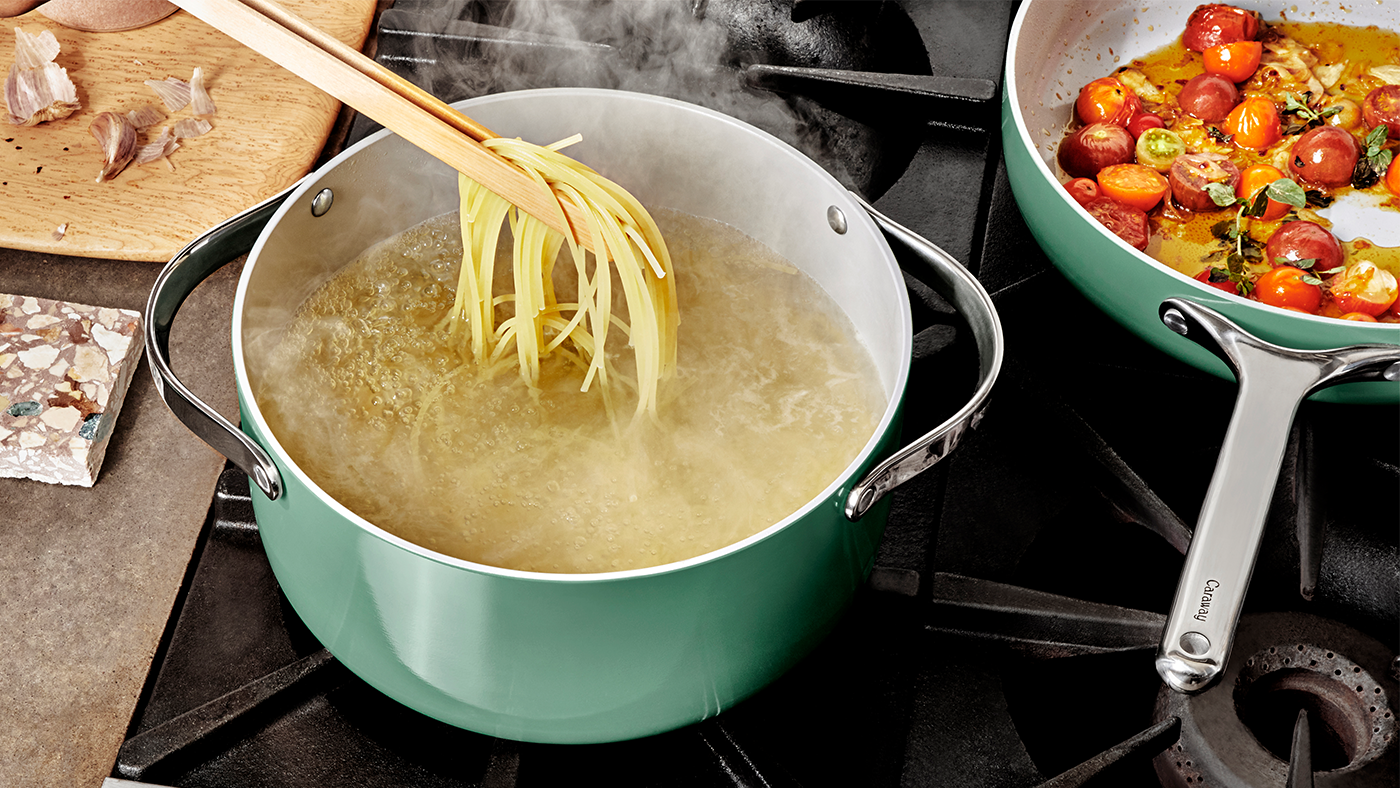
Rinsing Food
When you buy grapes (or any fresh fruit and berries) from the grocery store, how do you usually wash them?
Presumably, you just hold a few of them in your hand and run them under some water. Or maybe you take the slightly more difficult route of putting them in a bowl, pouring water over them, and covering them with your hand to contain them as you tip the bowl over to drain the water. These are time-consuming and not very effective ways to get the most out of your kitchen.
Believe it or not, it's possible to rinse fruit in a much easier and faster way than both methods, and all you need is a colander. All you have to do is place the fruit in the colander and rinse it with water—that’s it!
You don’t even need to transfer it to a bowl; you can just eat it straight out of the colander. How convenient! Not to mention, it’s much better than eating out of your hands, right?
Draining Canned Food
With the pasta and fresh fruit examples, the water was drained and discarded after it passed through the colander. There are times, however, when you’ll want to keep the liquids as well as the solids, just not together, such as when handling canned food items.
If you’re straining, for example, canned juice and you want to keep the liquids, a colander will be a very helpful tool in the process. All you have to do is place the colander above a larger bowl, pour the canned fruit into the colander, and allow the juice to drain out into the bowl; it’s as simple as that.
Keeping Produce Fresh
Now on to some uses that you probably wouldn’t think of right away. Some foods such as berries, mushrooms, and grapes are moisture-sensitive and can easily spoil. If you store them in a colander in the fridge, the moisture dries faster, which will prevent mold and ensure that your produce lasts much longer.
Prevent Grease Splatters
You already took care to preserve your stunning party outfit with your Linen Apron, but how do you keep your kitchen clean as well? Here’s a very creative use for you: using colanders to prevent grease splatters! Inverting a colander over the pan while frying an egg or cooking a burger allows for water vapor and heat escape and ensures that most of the fat spray is contained.
This works because fat molecules are much bigger than water molecules and therefore can’t escape through the holes.
We put a lot of work into getting the design aesthetic of our kitchens just right, so it’s disheartening to see our Instagram-worthy kitchen reduced to a grimy mess.
Steaming Vegetables
If you don’t happen to have a steam basket on you, no worries! A colander can come to the rescue. By setting the colander filled with vegetables in a larger pan filled with water, they can steam just as well as traditional vegetable steamers.
Keeping Bugs Away
A colander comes in handy for this use, especially in the summertime. When the weather’s nice, all you want to do is eat outside every chance you can get, but the pesky bugs that come along are a nightmare.
To keep them from swarming around your food, just turn over your colander and place it on top of the food, and they’re sure to be bug-free!
Straining Yogurt or Soft Cheeses
Last but not least, the use of a colander even extends to the cheese and yogurt-making process. The setup is simple, really. Just line the colander with a cheesecloth and set it over a bowl, then fill with either cheese or yogurt, and you’re done!
Easy Storage and Cleaning
The number one most difficult aspect of keeping a beautiful kitchen is storage. With all the gadgets and items you need to prepare delicious meals, it seems like we never have enough space. There are some secrets to perfect storage solutions. When you purchase a Cookware Set, you receive magnetic pan racks and a canvas lid holder, so your cabinets are as appealing as your pans.
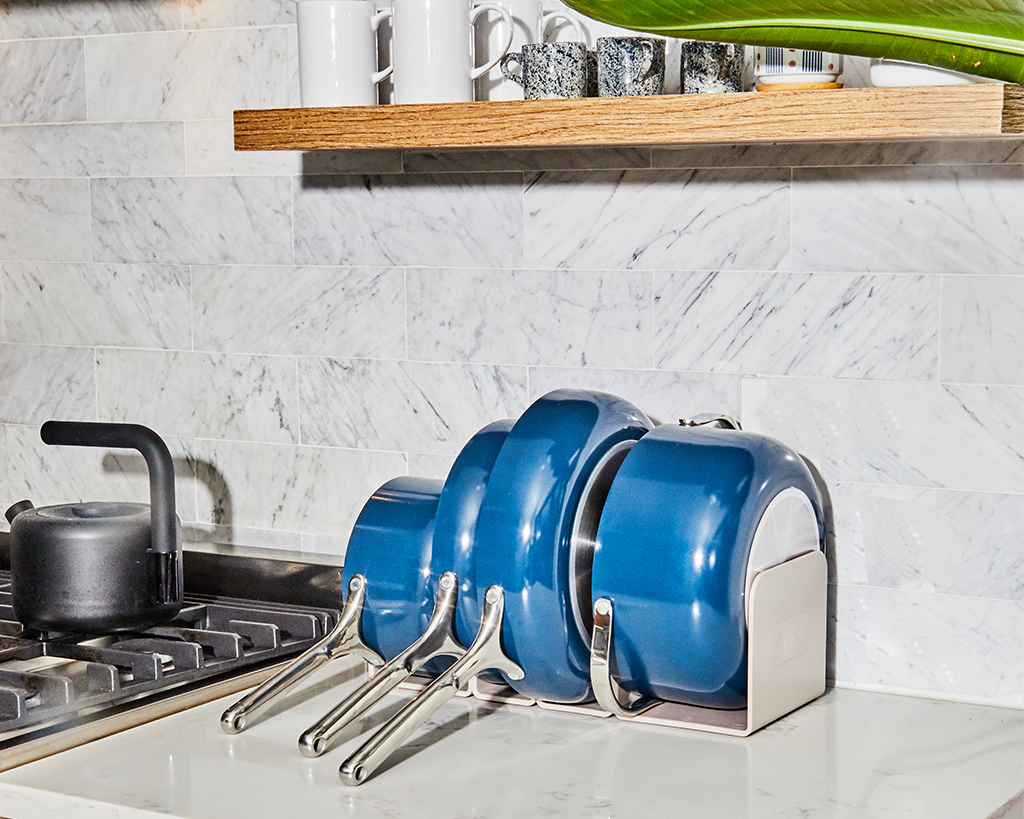
When you store intentionally, you won’t have to forfeit other tools like the colander, which is pretty useful.
Some colanders are large and bulky, but there’s a solution to that problem too. If you decide to buy a collapsible colander (yes, they do make those!), that’s even better for storage, as it can be placed in any spot in your kitchen while taking up little to no space.
As for the cleaning process, it’s as simple as running it under hot water and scrubbing excess food off of it with soap and a sponge—and that’s all there is to it!
Collecting Colanders
Have we convinced you to buy a colander? This versatile and easy-to-use product makes everyone’s lives easier, as they should be! What’s not to love about them? At this point, it should be a kitchen essential.
Sources:
4 Uses For a Colander You'll Wish You Knew About Sooner | HuffPost
The 30 best kitchen gadgets of 2019: Instant Pot, KitchenAid and more | USA Today
How to Make the Most of Your Kitchen Layout | Architectural Digest
